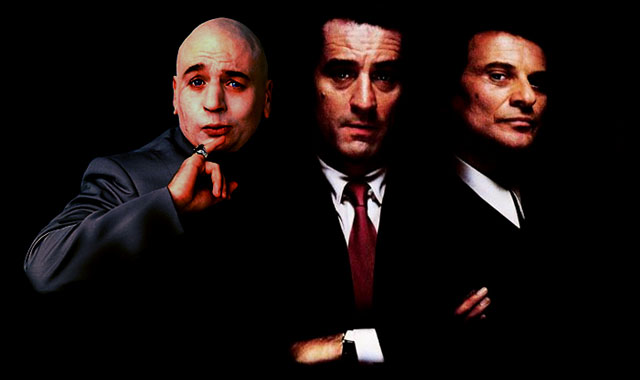

Goodfellas
Premise
Evaluation
Commentary In a sense, Goodfellas is a meditation on one of the questions raised by Freakonomics: if crack dealers make so much money that they're willing to risk their lives for it, why do they still live with their mothers? Take the case of the central caper of the movie, the 1978 Lufthansa heist. The people involved in robbing this airline risked their freedom and indeed their lives — both via possible police action and, as turned out to be the case, via the robbers turning on one another — in exchange for money. How much money? Say it with me, Dr. Evil: six mill-i-on dollars. That's less than 43 seconds of US spending on the war in Iraq. That's less than Adonal Foyle made to play 475 minutes during the 2006-7 NBA season. That's less than Goodfellas made in its opening weekend. And yes, inflation means that the $6 million would be worth more today, but it's not like one person pocketed the whole sum — the money was split a dozen ways. What did the crooks do with the money? One bought a pink Buick. One bought a fur coat. Soon thereafter they were gunned down by their co-conspirators. But hey, who wouldn't trade their lives for a week of driving around in a pink Buick? In an era when the Skillings and Kozlowskis and Rigases and Ebberses of the world are being sent to jail for ripping off hundreds of millions of dollars, it's easy to laugh at these small-time crooks, people who gave up everything for a few tens of thousands. But people do tend to think that the word "rich" refers to the economic class immediately above them and many will do whatever it takes to get there, even if in the grand scheme of things it's not particularly high. It's strange: crime among the classes above us seems absurd (why risk so much for money when you're already rich?), and crime among the classes below us seems absurd (why risk so much for such a pitifully small amount?). And yet crime is everywhere, crime, crime! Which suggests that the explanation for crime is not so simple as mere acquisitiveness. Trying to understand crime as the choice of rational actors strikes me as misguided. But isn't that the case for economics in general?
Return to the Calendar page! |
